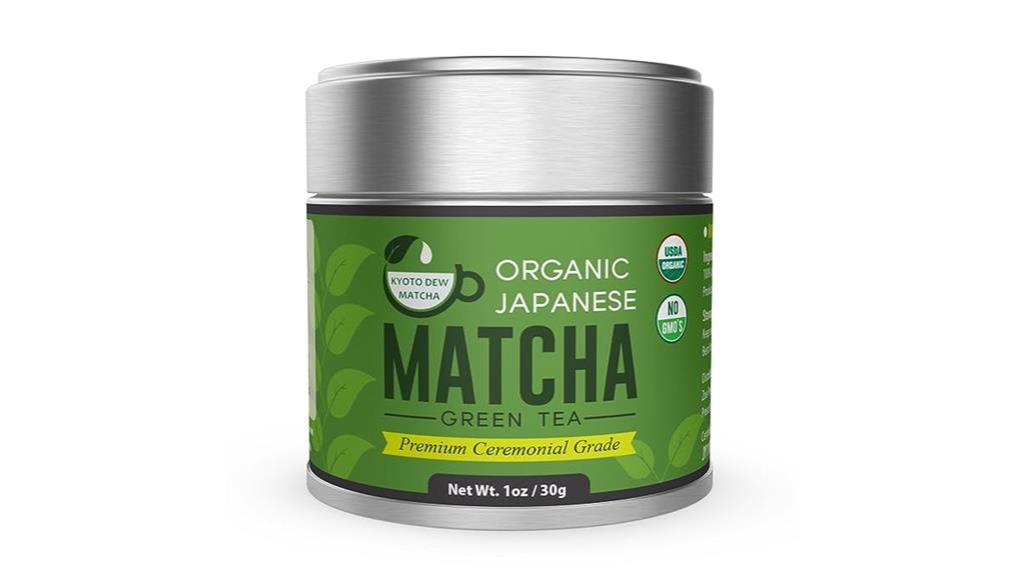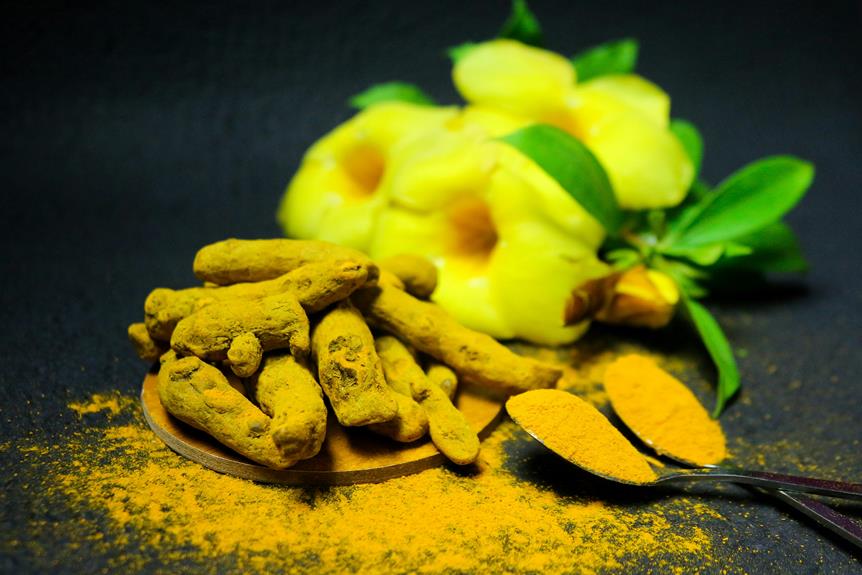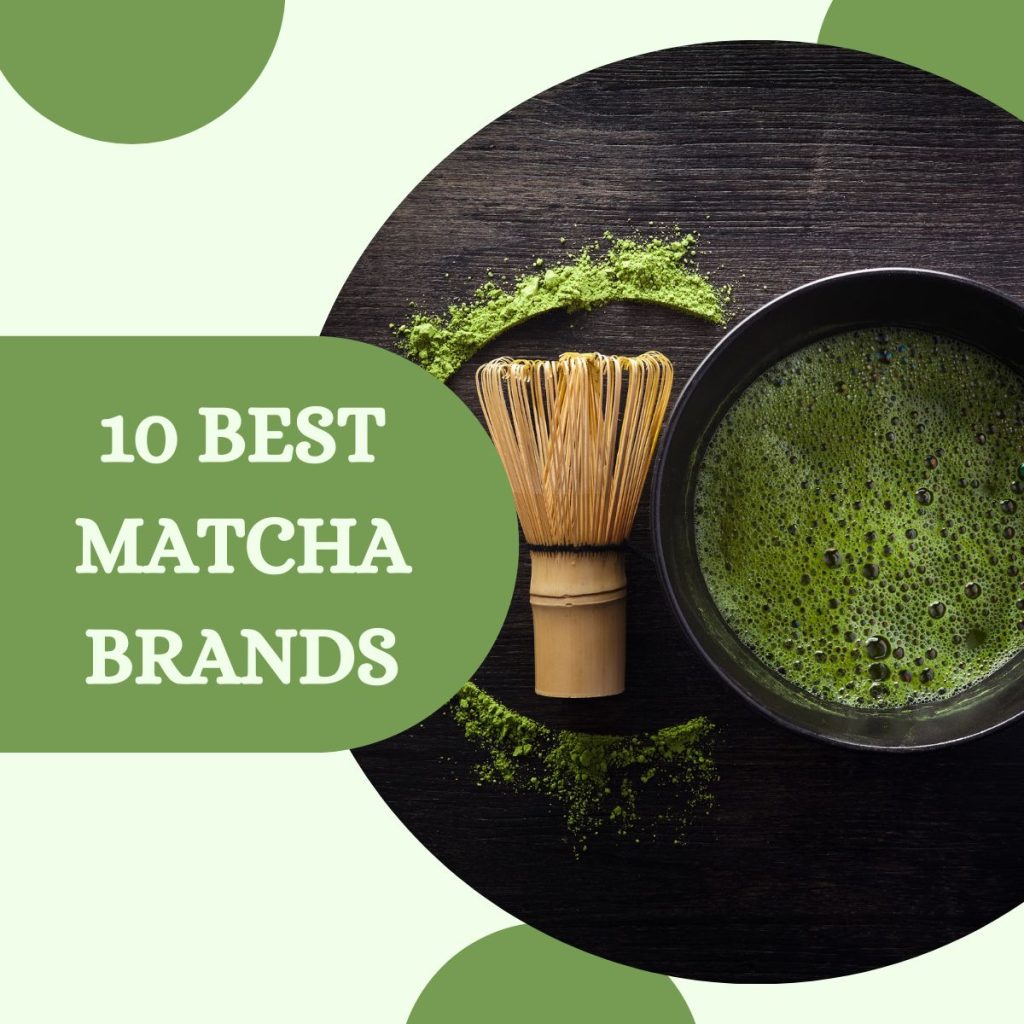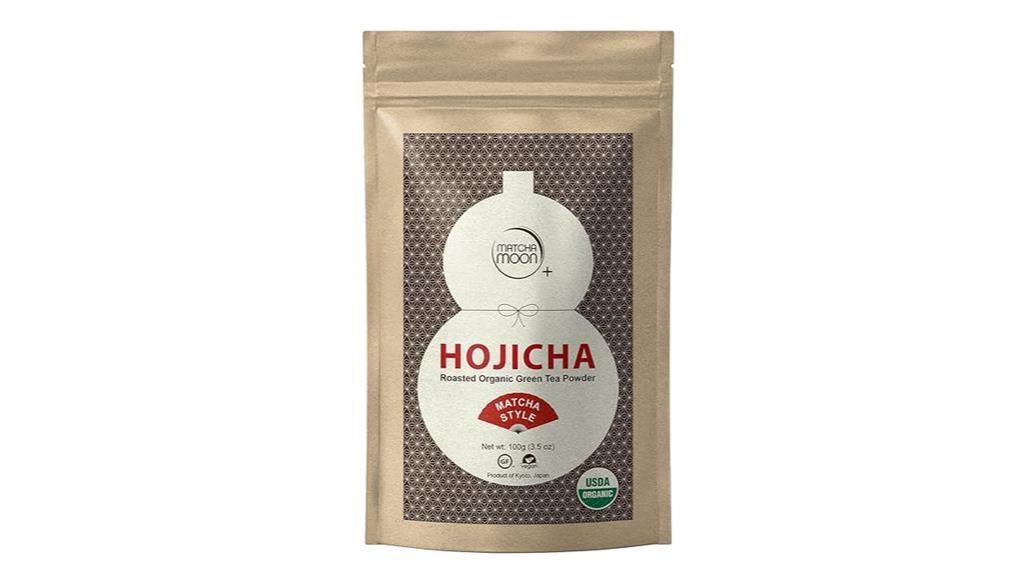We stumbled upon Kyoto Dew Matcha, an organic ceremonial grade matcha from Uji, Kyoto, Japan. Intrigued by its promise of superior quality and 137 times the antioxidants of green
Key Takeaways
- Kyoto Dew Matcha is certified organic and made from 100% pure organic matcha powder with no fillers.
- It contains 137 times the antioxidants of a regular cup of green
tea and provides jitter-free energy for 4-6 hours. - The matcha is sourced from the renowned Uji region in Kyoto, Japan and is grown in the shade to enhance flavor and nutritional value.
- Customers praise the smooth and creamy taste, balanced grassy and earthy notes, and the refreshing and harmonious experience of drinking Kyoto Dew Matcha.
Product Overview
Let’s take a look at the unique selling points, ingredients, and size optimization of Kyoto Dew Matcha. These three aspects will give us a comprehensive overview of what makes this organic ceremonial grade matcha stand out from the rest. By understanding these points, we can determine if it aligns with our preferences and needs.
Unique Selling Points
We have discovered that Kyoto Dew Matcha offers several unique selling points that set it apart from other matcha brands. Here are the key features that make it stand out:
- Certified Organic: Kyoto Dew Matcha is made from 100% pure organic matcha powder with no fillers. It is grown in Uji, Kyoto, Japan, a region renowned for producing high-quality matcha.
- Exceptional Quality: The matcha is made from hand-picked
tea leaves that are grown in the shade to enhance their flavor and nutritional value. It is air-dried and stone-ground to order, ensuring freshness and preserving its vibrant green color. - High in Antioxidants: Kyoto Dew Matcha contains 137 times the antioxidants of a regular cup of green
tea , making it a powerful source of natural antioxidants that can support overall health and well-being. - Jitter-Free Energy: Unlike coffee, Kyoto Dew Matcha provides 4-6 hours of sustained energy without the jitters or caffeine crash. It is a great alternative for those looking for a natural and healthier energy boost.
With its organic certification, exceptional quality, high antioxidant content, and sustained energy benefits, Kyoto Dew Matcha is truly a standout choice for matcha enthusiasts.
Ingredients
To continue our exploration of Kyoto Dew Matcha’s unique selling points, let’s delve into the ingredients that make up this exceptional product. Here is a breakdown of the key ingredients that contribute to the high quality and health benefits of Kyoto Dew Matcha:
- Certified Organic Matcha from Uji, Kyoto, Japan: This matcha is sourced from the renowned Uji region in Kyoto, Japan, known for producing some of the finest matcha in the world.
- 100% Pure Organic Matcha Powder with no fillers: Kyoto Dew Matcha is made from pure, high-quality matcha powder without any fillers or additives, ensuring a pure and authentic taste.
- 137 x the Antioxidants of Regular cup of Green
Tea : With an impressive antioxidant content, Kyoto Dew Matcha offers 137 times more antioxidants than a regular cup of greentea , providing numerous health benefits. - Premium Quality Matcha, Grown in the Shade, Hand Picked
Tea Leaves: The matcha in Kyoto Dew Matcha is made fromtea leaves grown in the shade, which enhances its flavor and nutritional profile. The leaves are hand-picked to ensure utmost quality.
These carefully selected ingredients contribute to the exceptional taste, quality, and health benefits of Kyoto Dew Matcha, making it a top choice for matcha enthusiasts.
Size Optimization
Continuing our exploration of Kyoto Dew Matcha’s unique selling points, we now delve into the size optimization of this exceptional product. When it comes to matcha, finding the right size can make a big difference in terms of convenience and value for money. Kyoto Dew Matcha understands this, which is why they offer their organic ceremonial grade matcha powder in three different sizes: 30g, 60g, and 100g. This ensures that customers have options that suit their individual needs and preferences. To give you a better idea, here is a table comparing the sizes and prices of Kyoto Dew Matcha:
| Size | Price |
|---|---|
| 30g | $19.99 |
| 60g | $34.99 |
| 100g | $49.99 |
With these size options, you can choose the perfect amount of matcha to enjoy without worrying about wastage or running out too quickly.
Product Certification
Now let’s talk about the product certification for Kyoto Dew Matcha. We want to know the origin of the
Origin of Tea
From Uji, Kyoto, Japan is where our certified organic matcha originates. Uji has a long history of producing high-quality matcha, known for its vibrant green color and rich flavor. The region’s unique climate and fertile soil create the perfect conditions for growing matcha tea leaves. Our matcha is sourced directly from local
Certifications?
Building upon our previous discussion on the origin of our matcha from Uji, Kyoto, Japan, let’s now delve into the certifications that our product holds. Our matcha is certified organic, ensuring that it is produced without the use of synthetic fertilizers, pesticides, or genetically modified organisms. This certification guarantees that our matcha meets strict standards for quality and sustainability. Additionally, our matcha is also certified as ceremonial grade, which means it is of the highest quality and suitable for traditional
Flavor Profile
We frequently enjoy the rich and vibrant flavor of Kyoto Dew Matcha, an organic ceremonial grade matcha from Uji, Kyoto, Japan. The flavor profile of this matcha is truly exceptional. It has a smooth and creamy taste with a hint of sweetness. The grassy and earthy notes are well-balanced, creating a harmonious and refreshing experience. The matcha has a subtle bitterness that is characteristic of high-quality ceremonial grade matcha. It leaves a lingering umami flavor on the palate, making each sip a delight. Whether enjoyed on its own or used in various recipes, Kyoto Dew Matcha offers a truly indulgent and satisfying flavor that is sure to please matcha enthusiasts.
Health Advantages
When it comes to health advantages, Kyoto Dew Matcha offers numerous benefits for matcha enthusiasts. One of the main advantages is its high antioxidant content. With 137 times the antioxidants of a regular cup of green
Advantages and Disadvantages
Now let’s talk about the advantages and disadvantages of Kyoto Dew Matcha. On the positive side, customers have praised the taste and quality of the matcha, as well as its ability to provide jitter-free energy for 4-6 hours. However, some customers have expressed concerns about the price and quantity of the product.
Positive Aspects
One advantage of Kyoto Dew Matcha is its high quality and organic certification. This means that the matcha is made from 100% pure organic matcha powder with no fillers, ensuring that you are getting the best quality product. Additionally, the matcha is grown in the shade and hand-picked, which helps to preserve the flavor and nutrients of the
Improvement Suggestions
To improve Kyoto Dew Matcha, we suggest increasing the quantity of the product while maintaining its high quality and organic certification. This will address the concern raised by customers regarding the limited quantity of the matcha powder. By offering a larger quantity, customers will feel that they are getting more value for their money. Additionally, increasing the quantity will also ensure that customers have an ample supply to enjoy the benefits of matcha on a regular basis. However, it is important to maintain the high quality and organic certification of the product. This will ensure that customers continue to receive a premium quality matcha that is grown in the shade, hand-picked, air-dried, and stone-ground to order. By making these improvements, Kyoto Dew Matcha can provide a better experience for its customers.
Review Ratings
After analyzing the customer reviews, we found that the review ratings for Kyoto Dew Matcha are mixed. Some customers have given it high ratings, praising its taste and quality. They appreciate the fact that it is certified organic and made from 100% pure matcha powder with no fillers. These customers also mention that it provides a jitter-free energy boost that lasts for 4-6 hours, making it a good substitute for coffee without the caffeine crash. However, there are also negative reviews about the price and quantity of the product. Some customers feel that it is quite expensive compared to other matcha brands. Others feel that the quantity provided is not sufficient for the price. Overall, the review ratings for Kyoto Dew Matcha indicate a range of opinions and experiences from customers.

Buy or Not?
Based on the mixed review ratings and varying customer experiences, we frequently debated whether or not to purchase Kyoto Dew Matcha. Some customers raved about its taste and quality, stating that it provided a refreshing and smooth matcha experience. However, others expressed concerns about the price and quantity of the product, feeling that it was too expensive for what they received. We also took into consideration the comparison of matcha brands, which showed that Kyoto Dew Matcha fell within the top four based on taste and quality. Ultimately, we decided to give it a try, considering its certified organic status and the fact that it is grown in Uji, Kyoto, Japan. We are hoping that it lives up to its reputation as a premium quality matcha.
FAQ’s
Now let’s address some common questions about Kyoto Dew Matcha. How should it be used? What are the serving size recommendations? Are there any storage instructions? Can it be used in recipes? And are there any potential side effects to be aware of? We’ll provide answers to these FAQs to help you make the most of your matcha experience.
How to Use
By following these simple steps, we can easily incorporate Kyoto Dew Matcha into our daily routine. First, measure out 1/2 teaspoon of matcha powder and place it in a bowl. Next, add 2 ounces of hot water (about 175°F) to the bowl. Using a bamboo whisk or a small whisk, vigorously whisk the matcha and water together in a zigzag motion until it becomes frothy. Finally, enjoy your freshly prepared matcha! You can drink it as is or add a sweetener of your choice, such as honey or agave syrup. For a creamier texture, you can also substitute some of the water with your preferred milk or milk alternative. Remember to adjust the amount of matcha powder and water based on your personal taste preferences.
Serving Size Recommendations
We recommend following the serving size recommendations for Kyoto Dew Matcha to ensure the best experience with this organic ceremonial grade matcha. The recommended serving size for a traditional matcha
Storage Instructions
To properly store Kyoto Dew Matcha, we recommend following these storage instructions. First, make sure to store the matcha powder in an airtight container to prevent moisture and air from degrading its quality. It is also important to keep the container in a cool and dry place, away from direct sunlight, as exposure to light and heat can affect the flavor and color of the matcha. Additionally, avoid storing the matcha near strong-smelling foods, as it can absorb odors easily. Lastly, it is recommended to consume the matcha within a few weeks after opening, as its freshness and potency may diminish over time. By following these storage instructions, you can ensure that your Kyoto Dew Matcha stays fresh and delicious for longer.
Can It Be Used in Recipes
Continuing the discussion on the versatility of Kyoto Dew Matcha, let’s explore how this organic ceremonial grade matcha powder can be incorporated into various recipes. One popular way to use matcha in recipes is by adding it to baked goods, such as cakes, cookies, and muffins. It adds a vibrant green color and a subtle earthy flavor. Matcha can also be used to make delicious beverages, such as iced matcha lattes, matcha smoothies, and matcha lemonade. Additionally, matcha can be used in savory dishes like matcha-infused noodles, matcha salad dressings, and matcha marinades for meat and fish. The possibilities are endless when it comes to incorporating Kyoto Dew Matcha into your favorite recipes, allowing you to enjoy its rich flavor and health benefits in a variety of ways.



Konnichiwa! (Hello!) I'm Pat Tokuyama, a Japanese tofu cookbook author, who travels for music, food, and adventure. If you like Japanese tea, checkout some of the newestorganic japanese tea, matcha bowls and noren and more!
** Curious about the Plant Based Japanese Cooking Club? ** Learn more here!
Any Potential Side Effects?
As we delve into the potential side effects of Kyoto Dew Matcha, it is important to address any concerns or questions that may arise regarding its consumption. Matcha is generally considered safe for most people when consumed in moderate amounts. However, it does contain caffeine, so individuals who are sensitive to caffeine or have certain medical conditions such as anxiety, high blood pressure, or heart problems should exercise caution. It is also worth noting that matcha is high in antioxidants, which can sometimes cause digestive issues or allergic reactions in some individuals. If you have any concerns or pre-existing health conditions, it is always a good idea to consult with your healthcare provider before incorporating matcha into your diet.
Helpful Resources
We have found several helpful resources for those interested in learning more about matcha and its various brands. One resource is a website that provides detailed product information about Kyoto Dew Matcha, including its certification as an organic ceremonial grade matcha from Uji, Kyoto, Japan. The website also highlights the unique qualities of the matcha, such as its high antioxidant content and the fact that it is made from 100% pure organic matcha powder with no fillers. Additionally, there are customer reviews available that offer insights into the taste and quality of the matcha. Another resource compares different matcha brands based on their cost per gram, as well as their taste and quality. This comparison can be helpful for those looking to make an informed decision when choosing a matcha brand.













Konnichiwa! (Hello!) I'm Pat Tokuyama, a Japanese tofu cookbook author, who travels for music, food, and adventure. If you like Japanese tea, checkout some of the newestorganic japanese tea, matcha bowls and noren and more!
** Curious about the Plant Based Japanese Cooking Club? ** Learn more here!